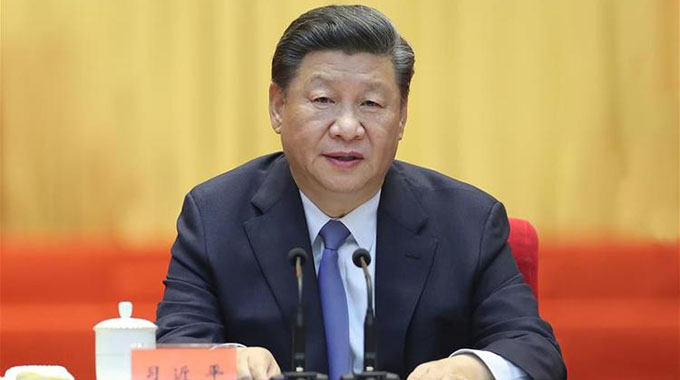Zimbabwe marks Global Handwashing Day

John Mokwetsi Correspondent
The theme for this year’s Global Handwashing Day commemorations, “Clean Hands for All”, is in accordance with the call of the SDGs to “Leave No One Behind”.
UNICEF representative in Zimbabwe Ms Laylee Moshiri reiterated that they remained committed to working with the Government of Zimbabwe in ensuring the fulfilment of the sixth sustainable development goal (SDG 6) that obligates the availability and sustainable management of water and sanitation for all.
Speaking at celebrationsto mark the Global Handwashing Day at Zedza Primary School in Mutsago Village, Mutare Rural District, Ms Moshiri said there was need to create the correct enabling environment for homes and institutions like schools, health facilities and public places to be able to have access to good sanitation, hygiene and hand washing facilities.
“The series of cholera outbreaks that have claimed countless lives in this country since 2008 is an unequivocal reminder that business as usual is not an option.
“We, therefore, urge the Government and other partners to join efforts in investing towards provision of sustainable supplies of safe water, sanitation and handwashing facilities, in homes, schools, clinics and other public places across Zimbabwe,” Ms Moshiri said.
“Water, sanitation and hygiene are not only a right, but also key drivers of the country’s economic growth.”
In a keynote address read on behalf of Minister of Lands, Agriculture, Water, Climate and Rural Resettlement Perrance Shiri it was emphasised that Government’s top priority was the provision of clean water, including hygiene practices. He said: “Water, sanitation and hygiene are not only a right, but also key drivers of the country’s economic growth. Government of Zimbabwe recognises these rights as enshrined in the Constitution of Zimbabwe, Amendment No. 20 Section 77 that says, ‘Every person has a right to safe, clean and potable and sufficient water and food’.”
The minister added that he was aware that as a country, Zimbabwe missed the Millennium Development Goals for water and sanitation and was making strides towards meeting the SDG 6 target.
“I am informed that only 34 percent of our rural population have access to basic sanitation, whilst urban areas are at 43 percent. Improved water supply coverage is at 78 percent nationally and 68 percent in the rural areas. What is more shocking is the percentage of our rural population that defecate in the open, which stands at 22 percent nationally and 31 percent in the rural areas.
“This picture of the water and sanitation coverage requires a major policy shift if we are to meet the SDG targets in general to improve the health status of our rural population.”
During the commemorations, which was attended by senior Government officials, development partners and residents of Mutsago Village, a tour of the village that was declared open defecation-free also showed how the work around promoting hygiene practices was bearing fruit.
Students took time to use theatre, poetry, dance and song to educate people on the importance of washing hands and adhering to hygiene practices. — Unicef









Comments